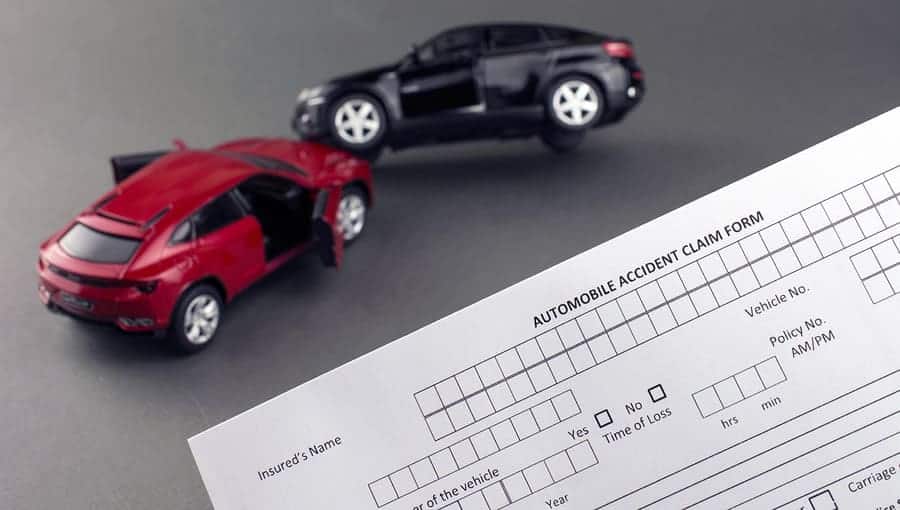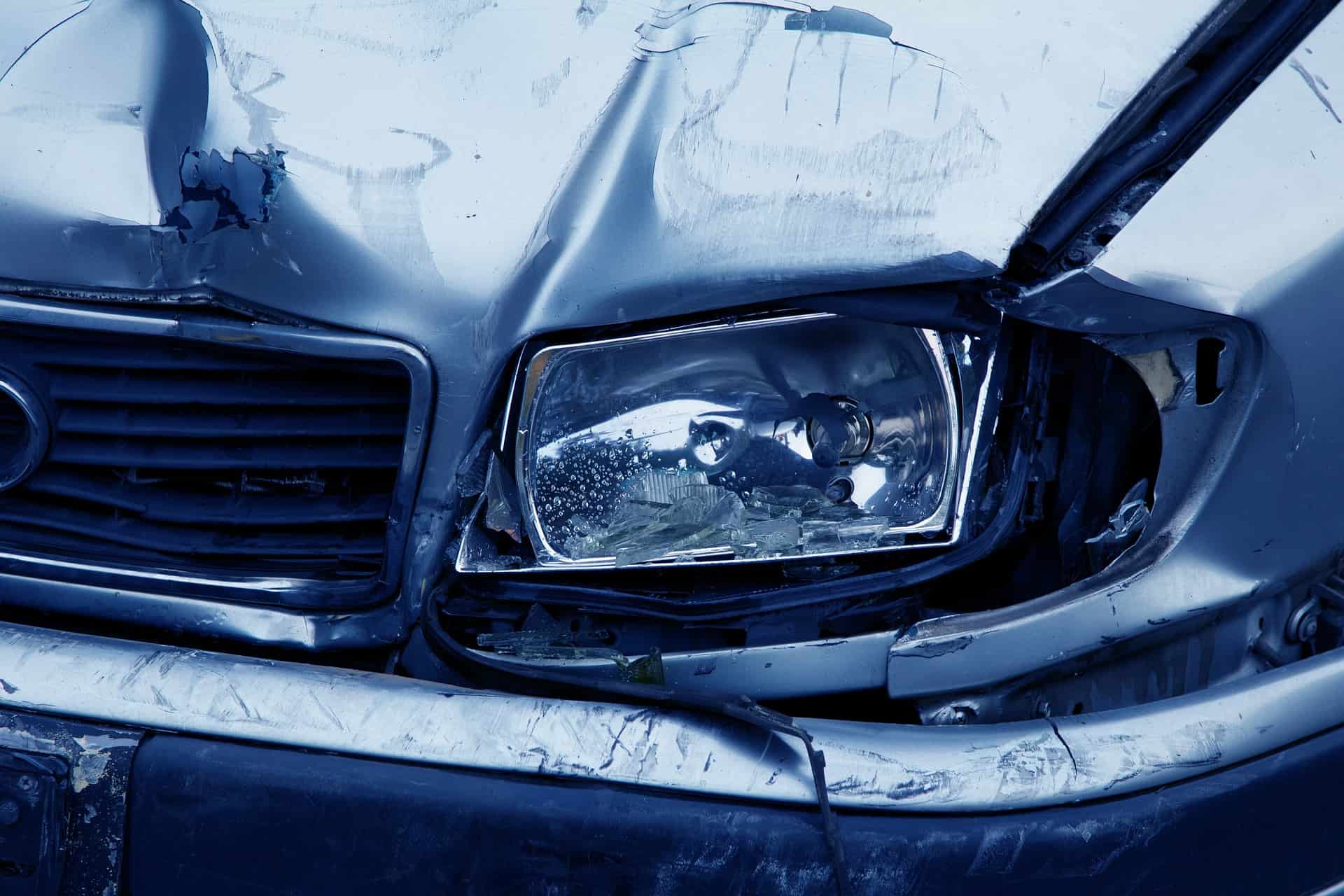Can you recover compensation if you were partially at fault in a car accident? Here are the laws in all 50 states.
In order to fully recover your losses after a car accident, you need to be able to prove that someone else (i.e. the other driver) was at fault. But, what if you were at fault? Or, what if you were partially at fault in your car accident? Can you still recover a car accident settlement that will cover all your medical bills and lost wages? The answer depends on the law in your state.
Here you will find the laws regarding the ability to recover financial compensation if you were partially at fault in a car accident in all 50 states.
Understanding the Rules that Apply When Multiple Drivers are At Fault in a Car Accident
Different states follow different rules when it comes to recovering your losses after a car accident in which you were partially at fault. The four main rules are:
- Contributory Negligence – In contributory negligence (or “pure contributory negligence”) states, if you are partially at fault in a car accident, then you cannot recover any compensation for your accident-related losses. Fortunately, only a handful of states follow this rule. Due to the fact that you cannot recover anything even if you were only 1% at fault, it is extremely important to hire a lawyer to deal with the insurance companies and establish liability on your behalf.
- Pure Comparative Fault – In pure comparative fault states, the amount you can recover is reduced in proportion to your percentage of fault. So, for example, if you are 10% at fault in an accident, you are still entitled to recover 90% of your losses. Twelve states follow the rule of pure comparative fault; and, if you life in one of these states, maximizing your financial recovery will involve proving that your fault (if any) was at most a minor factor in your accident.
- Modified Comparative Fault – In modified comparative fault states, you can recover partial compensation as long as your percentage of fault is below a certain threshold. Ten states bar a financial recovery if you are 50% or more at fault, and 23 states bar a financial recovery if you are 51% or more at fault. So, for example, if you live in a 50% state and you are 40% at fault, you are entitled to recover 60% of your losses. However, if you are 50% at fault, then you would not be eligible to receive any financial compensation.
- Slight Negligence – One state, South Dakota, follows the rule of slight negligence. This is similar to the rule of contributory negligence, but it allows for partial recovery if your negligence is only “slight in comparison with the negligence of the defendant.”

- What’s my car accident settlement worth?
- Find out in less than 60 Seconds!
The Law Regarding Partial Fault in Car Accidents: States Beginning with A through G
State |
Rule Regarding Partial Fault |
State Law |
| Alabama | Contributory Negligence | John Cowley & Bros., Inc. v. Brown, 569 So.2d 375 (Ala. 1990) |
| Alaska | Pure Comparative Fault | Alaska Statutes Sections 09.17.060 and 09.17.080 |
| Arizona | Pure Comparative Fault | Arizona Revised Statutes Section 12-2505 |
| Arkansas | Modified Comparative Fault (50% Bar to Recovery) | Arkansas Code Section 16-64-122 |
| California | Pure Comparative Fault | Diaz v. Carcamo, 253 P.3d 535 (Cal. 2011) |
| Colorado | Modified Comparative Fault (50% Bar to Recovery) | Colorado Revised Statutes Section 13-21-111 |
| Connecticut | Modified Comparative Fault (51% Bar to Recovery) | Connecticut General Statutes Section 52-572h |
| Delaware | Modified Comparative Fault (51% Bar to Recovery) | Delaware Code Section 1-8132 |
| Florida | Pure Comparative Fault | Florida Statutes Section 768.81 |
| Georgia | Modified Comparative Fault (50% Bar to Recovery) | Georgia Code Sections 51-11-7 and 51-12-33 |
Facts about Contributory Negligence and Comparative Fault
1. You Should Never Assume You Were Partially At Fault in a Car Accident
Regardless of the circumstances involved, you should never assume that you were partially at fault in a car accident. If you assume you were at fault and decide not to file a claim, you will not have any chance of recovering the compensation you deserve.
2. You Do Not Have To (and Should) Not Accept the Insurance Company’s Determination of Fault
When you file an insurance claim, your insurance company may try to deny compensation (or reduce the amount of your settlement) by claiming that you were partially at fault in your accident. If this happens, you should not accept the insurance company’s determination of fault. Instead, you should hire a lawyer to conduct an investigation and make a determination with your best interests in mind.
3. Determining Fault Requires a Thorough On-Scene (and Off-Scene) Investigation
In order to determine who was at fault in your accident, it will be necessary to conduct a comprehensive investigation. This will include gathering evidence at the scene of the accident and gathering information from other sources. For example, even if the evidence at the scene of the accident suggests that you may have been at fault, surveillance footage and the other driver’s phone records could show that the other driver was distracted and there was nothing you could have done to avoid the collision.
4. Even a Small Percentage of Fault Can Make a Big Difference
Depending on the state in which you live, even a small percentage of fault can make a big difference. For example, if you live in a contributory negligence or modified comparative fault state, even 1% could be the difference between securing just compensation and recovering nothing at all.
5. Even if You Were Doing Something You Shouldn’t Have, This Does Not Necessarily Mean You Were Partially at Fault
One of the most important things you need to know is that even if you were doing something you shouldn’t have, this does not necessarily mean that you were partially at fault in your car accident. For example, if you were speeding slightly, an investigation could reveal that your speed was not a factor in your collision. Likewise, if you were looking at your phone while stopped at a red light, there is a good chance that the other driver could still be 100% at fault for your collision.
The Law Regarding Partial Fault in Car Accidents: States Beginning with H through M
State |
Rule Regarding Partial Fault |
State Law |
| Hawaii | Modified Comparative Fault (51% Bar to Recovery) | Hawaii Revised Statutes Section 663-31 |
| Idaho | Modified Comparative Fault (50% Bar to Recovery) | Idaho Code Section 6-801 |
| Illinois | Modified Comparative Fault (51% Bar to Recovery) | Illinois Compiled Statutes Section 735 5/2-116 |
| Indiana | Modified Comparative Fault (51% Bar to Recovery) | Indiana Code Section 34-51-2-6 |
| Iowa | Modified Comparative Fault (51% Bar to Recovery) | Iowa Code Section 668.3 |
| Kansas | Modified Comparative Fault (50% Bar to Recovery) | Kansas Statutes Section 60-258a |
| Kentucky | Pure Comparative Fault | Kentucky Revised Statutes Section 411.182 |
| Louisiana | Pure Comparative Fault | Louisiana Statutes Civil Code Article 2323 |
| Maine | Modified Comparative Fault (50% Bar to Recovery) | Maine Revised Statutes Section 14-156 |
| Maryland | Contributory Negligence | Board of County Comm’r of |
| Massachusetts | Modified Comparative Fault (51% Bar to Recovery) | Massachusetts General Laws Section 231-85 |
| Michigan | Modified Comparative Fault (51% Bar to Recovery) | Michigan Code of Laws Section 600.2959 |
| Minnesota | Modified Comparative Fault (51% Bar to Recovery) | Minnesota Statutes Section 604.01 |
| Mississippi | Pure Comparative Fault | Mississippi Code Section 11-7-15 |
| Missouri | Pure Comparative Fault | Gustafson v. Benda, 661 S.W.2d 11 (Mo. 1983) |
| Montana | Modified Comparative Fault (51% Bar to Recovery) | Montana Statutes Section 27-1-702 |
Recovering Your Losses When You Were Partially at Fault in a Car Accident
Who Determines if I was Partially at Fault in a Car Accident?
To an extent, the answer to this question is up to you. If you try to file a car accident insurance claim on your own, your insurance company will make its own determination of liability. However, if you get a lawyer for your car accident, then your lawyer can determine fault and negotiate for a fair settlement on your behalf. If your insurance company refuses to accept 100% liability, you will have the option of taking your claim to court and having a judge or jury determine if you were partially at fault.
What are Some Common Examples of Fault in Car Accidents?
Many different types of fault can cause and contribute to causing car accidents. Some of the most-common examples of fault include things like:
- Speeding
- Running a red light or stop sign
- Merging without the right of way
- Driving while distracted
- Driving while drunk or high
- Driving while drowsy (or falling asleep behind the wheel)
- Tailgating
- Changing lanes without signaling and/or cutting someone off
- Passing dangerously
- Other forms of aggressive or reckless driving
What if Multiple Other Parties (i.e. Multiple Other Drivers) Were All Partially at Fault?
If multiple other parties were all partially at fault in your car accident, you can seek to recover full compensation, and the steps you need to take will depend upon the laws in your state. Some states have adopted the law of “joint and several liability,” which allows car accident victims to recover all of their losses from any one party that is liable for their injuries. However, if you live in a state that has not adopted the law of joint and several liability, then you will need to file a separate claim against each at-fault party in order to recover full compensation. A lawyer can explain your state’s law and file all necessary claims on your behalf.
How Much Can I Recover if I was Partially at Fault in a Car Accident?
If you were partially at fault in your car accident, the amount you can recover will depend on: (i) your state’s law, (ii) your percentage of fault, and (iii) the total amount of your losses. Let’s look at a few examples:
Example #1: You Live In a Pure Comparative Fault State, You Were 50% at Fault, and Your Total Losses are $100,000
In this example, you would be entitled to recover $50,000. Your state’s pure comparative fault law allows you to receive compensation regardless of your percentage of fault; and, since you were 50% at fault, you can recover 50% of your losses.
Example #2: You Live in a Pure Comparative Fault State, You Were 75% at Fault, and Your Total Losses are $200,000
In this example, you would also be entitled to recover $50,000. Since you were 75% at fault, you can receive 25% of your total losses. Twenty-five percent of $200,000 is $50,000.
Example #3: You Live in a Modified Comparative Fault State with a 50% Bar to Recovery, You Were 50% at Fault, and Your Total Losses are $100,000
This example is the same as Example #1, except you live in a modified comparative fault state with a 50% bar to recovery. Given that you were 50% at fault, you would not be entitled to receive any compensation for your accident-related losses.
Should I Hire a Lawyer to Represent Me if I was Partially at Fault in My Car Accident?
Yes, if you believe that you may have been partially at fault in your car accident, you should definitely hire a lawyer to represent you. An experienced car accident will be able to determine whether you were in fact partially at fault, calculate your car accident compensation, and fight to secure maximum compensation on your behalf.
The Law Regarding Partial Fault in Car Accidents: States Beginning with N through O
State |
Rule Regarding Partial Fault |
State Law |
| Nebraska | Modified Comparative Fault (50% Bar to Recovery) | Nebraska Revised Statutes Section 25-21, 185.11 |
| Nevada | Modified Comparative Fault (51% Bar to Recovery) | Nevada Revised Statutes Section 41-141 |
| New Hampshire | Modified Comparative Fault (51% Bar to Recovery) | New Hampshire Revised Statutes Section 507:7-d |
| New Jersey | Modified Comparative Fault (51% Bar to Recovery) | New Jersey Statutes Section 2A:15-5.1 |
| New Mexico | Pure Comparative Fault | Scott v. Rizzo, 634 P.2d 1234 (N.M. 1981) |
| New York | Pure Comparative Fault | New York Consolidated Laws, Civil Practice Law and Rules Section 1411 |
| North Carolina | Contributory Negligence | Smith v. Fiber Controls Corp., 268 S.E.2d 504 (N.C. 1980) |
| North Dakota | Modified Comparative Fault (50% Bar to Recovery) | North Dakota Code Section 32-03.2-02 |
| Ohio | Modified Comparative Fault (51% Bar to Recovery) | Ohio Revised Code Section 2315.33 |
| Oklahoma | Modified Comparative Fault (51% Bar to Recovery) | Oklahoma Statutes Title 23 Section 13 |
| Oregon | Modified Comparative Fault (51% Bar to Recovery) | Oregon Revised Statutes Section 31.600 |
What To Do if You Think You Were Partially At Fault in a Car Accident
1. Keep Everything You Have from the Car Accident
Any information or evidence you have – from the other driver’s insurance information to your copy of the policy report – could potentially be relevant to your insurance claim. Keep your photos, damaged personal items, pieces of your vehicle, and anything else you may happen to have as well.
2. Take Detailed Notes about the Accident
Take the time to take detailed notes. Why do you believe that you may have been partially at fault? What did you notice about the other driver and vehicle before, during, and after the collision? At this point, every single detail could potentially be relevant to determining who is liable for your injuries.
3. See a Doctor and Follow Your Doctor’s Advice
In order to file an insurance claim, you will need to see a doctor, and you will need your medical records to reflect that your injuries are the result of your car accident. Once you receive a diagnosis, follow your doctor’s advice, and avoid doing anything that could hinder or delay your physical recovery.
4. Make Sure You Do NOT Admit Fault to the Insurance Companies
Even if you think that you may have been at fault, you should NOT admit this to your insurance company. The truth of the matter is that you won’t know who was at fault until you hire a lawyer to conduct an investigation, but this won’t stop the insurance companies from trying to use your words against you.
5. Schedule a Free Consultation with a Car Accident Lawyer
In order to protect your legal rights, you need speak with a car accident lawyer. It costs nothing to get legal advice about your insurance claim, and an experienced lawyer can make sure you receive the compensation you deserve.

- Speak to a Car Accident Attorney
- Fast, Free & Confidential!
The Law Regarding Partial Fault in Car Accidents: States Beginning with P through W
State |
Rule Regarding Partial Fault |
State Law |
| Pennsylvania | Modified Comparative Fault (51% Bar to Recovery) | Pennsylvania Statutes Title 42, Section 7102 |
| Rhode Island | Pure Comparative Fault | Rhode Island General Laws Section 9-20-4 |
| South Carolina | Modified Comparative Fault (51% Bar to Recovery) | Ross v. Paddy, 532 S.E.2d 612 (Ct. App. 2000) |
| South Dakota | Slight Negligence | South Dakota Code of Laws Section 20-9-2 |
| Tennessee | Modified Comparative Fault (50% Bar to Recovery) | McIntyre v. Balentine, 833 S.W.2d 52 (Tenn. 1992) |
| Texas | Modified Comparative Fault (51% Bar to Recovery) | Texas Civil Practice & Remedies Code Chapter 33, Subchapter A |
| Utah | Modified Comparative Fault (50% Bar to Recovery) | Utah Code Section 78B-5-818 |
| Vermont | Modified Comparative Fault (51% Bar to Recovery) | Vermont Statutes Title 12, Section 1036 |
| Virginia | Contributory Negligence | Baskett v. Banks, 45 S.E.2d
173 (Va. 1947) |
| Washington | Pure Comparative Fault | Revised Code of Washington Section 4.22.005-015 |
| Washington D.C. | Contributory Negligence | Wingfield v. People’s Drug Store, 379 A.2d 685 (D.C. 1994) |
| West Virginia | Modified Comparative Fault (51% Bar to Recovery) | West Virginia Code Section 55-7-13 |
| Wisconsin | Modified Comparative Fault (51% Bar to Recovery) | Wisconsin Statutes Section 895.045 |
| Wyoming | Modified Comparative Fault (51% Bar to Recovery) | Wyoming Statutes Section 1-1-109 |
*The contributory negligence and comparative fault laws for all 50 states listed above were last reviewed in 2020. You should review your state’s law to make sure you know what rule applies in your state; and, regardless of what rule applies, you should contact a lawyer to determine how much you can recover if you have been injured in a car accident.
SUMMARY: Can You Recover Financial Compensation if You Were Partially At Fault in a Car Accident?
So, can you file an insurance claim if you were partially at fault in your car accident? The truth is that you should speak with a lawyer regardless of who you think was at fault—even if you live in a contributory negligence state where you might be barred from recovering financial compensation. The costs of traumatic injuries can be substantial; and, since you can get a free claim assessment, you have no reason not to discuss your claim with an experienced attorney.
Contributory Negligence States
If you live in a contributory negligence state, then you will not be able to recover any compensation if you were partially at fault in your car accident. The contributory negligence states are:
- Alabama
- Maryland
- North Carolina
- Virginia
- Washington D.C.
Pure Comparative Fault States
If you live in a pure comparative fault state, you can recover partial compensation regardless of your percentage of fault. The pure comparative fault states are:
- Alaska
- Arizona
- California
- Florida
- Kentucky
- Louisiana
- Mississippi
- Missouri
- New Mexico
- New York
- Rhode Island
- Washington
Modified Comparative Fault States with a 50% Bar to Recovery
If you live in a modified comparative fault state with a 50% bar to recovery, you can recover partial compensation as long as you were less than 50% at fault in your accident. The modified comparative fault states with a 50% bar to recovery are:
- Arkansas
- Colorado
- Georgia
- Idaho
- Kansas
- Maine
- Nebraska
- North Dakota
- Tennessee
- Utah
Modified Comparative Fault States with a 51% Bar to Recovery
If you live in a modified comparative fault state with a 51% bar to recovery, you can recover partial compensation as long as you were less than 51% at fault in your accident. The modified comparative fault states with a 51% bar to recovery are:
- Connecticut
- Delaware
- Hawaii
- Illinois
- Indiana
- Iowa
- Massachusetts
- Michigan
- Minnesota
- Montana
- Nevada
- New Hampshire
- New Jersey
- Ohio
- Oklahoma
- Oregon
- Pennsylvania
- South Carolina
- Texas
- Vermont
- West Virginia
- Wisconsin
- Wyoming
“Slight Negligence” State
If you live in a “slight negligence” state, then you can only recover financial compensation if your fault was, “slight in comparison with the negligence of the defendant.”
The only “slight negligence” state is South Dakota.

- How Much Is Your Car Accident Settlement Worth?
Find out the maximum compensation you could receive.
- How Much Is My Car Accident Settlement Worth?

